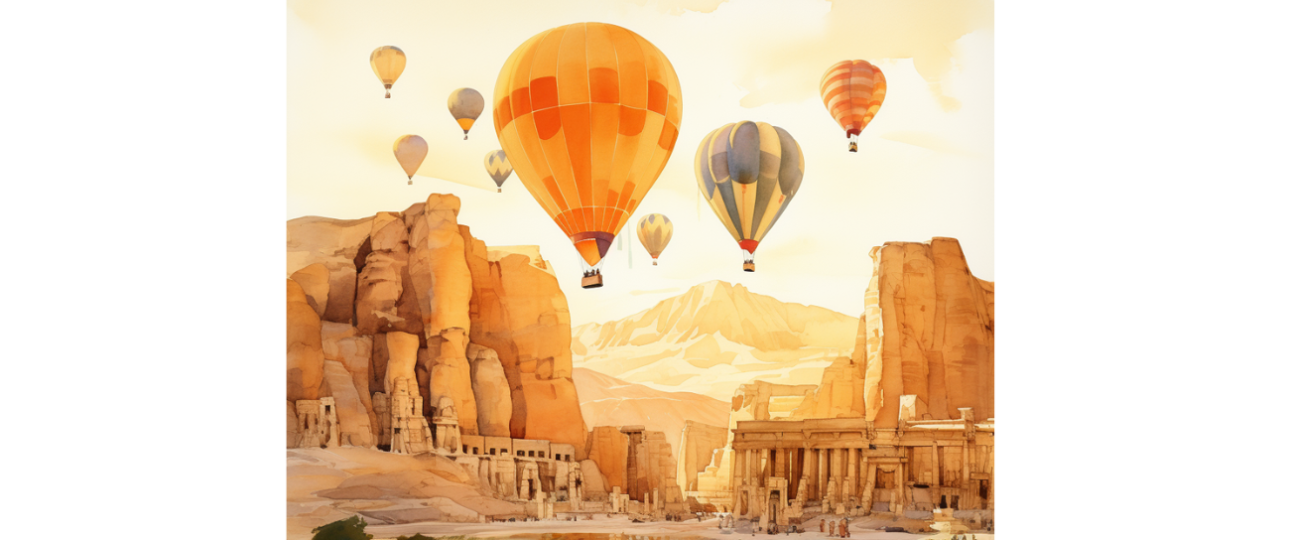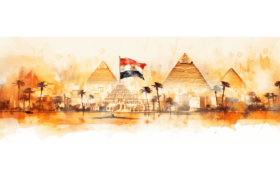A brief overview of Luxor’s significance and allure
Nestled along the majestic banks of the Nile River, Luxor stands as a timeless testament to Egypt’s unparalleled historical and cultural legacy. This enchanting city, often called the “World’s Greatest Open-Air Museum,” beckons travelers from across the globe to embark on a journey through the annals of human history. Luxor’s significance and allure lie in its unrivaled wealth of ancient treasures spanning thousands of years and the indomitable spirit of its people who continue to breathe life into this living museum.
In this article, we will unravel the profound significance of Luxor, explore its captivating allure, and guide you on an unforgettable journey through the very heart of Egypt’s ancient soul. Whether you’re a history enthusiast, an archeology buff, or simply a curious wanderer, Luxor promises an experience like no other, where the past and present converge to create a tapestry of wonder and discovery.
Join us as we embark on a captivating voyage through Luxor’s storied past, vibrant present, and enduring legacy that continues to captivate travelers from every corner of the world.
Best Time to Visit Luxor
Luxor, located in the heart of Egypt, offers a range of experiences throughout the year, but the best time to visit largely depends on your preferences and tolerance for extreme temperatures. From our experience, the best time to visit Luxor is from March to April and between October and November. However, to help you plan your journey effectively, here’s an overview of the weather conditions by season and the recommended travel periods:
Winter (November to February)
- Weather Conditions: Winter is the peak tourist season in Luxor for a reason. During this time, the weather is pleasantly mild, with daytime temperatures ranging from 20°C to 25°C (68°F to 77°F). Evenings can get cooler, so packing a light jacket or sweater is advisable.
- Recommended Travel Periods: November to February is ideal for travelers who want to explore Luxor’s historical treasures comfortably. The pleasant weather allows you to visit ancient sites, such as the Luxor Temple, Karnak Temple, and the Valley of the Kings, without the scorching heat of summer. Plus, the Nile cruises are a delightful experience during this season.
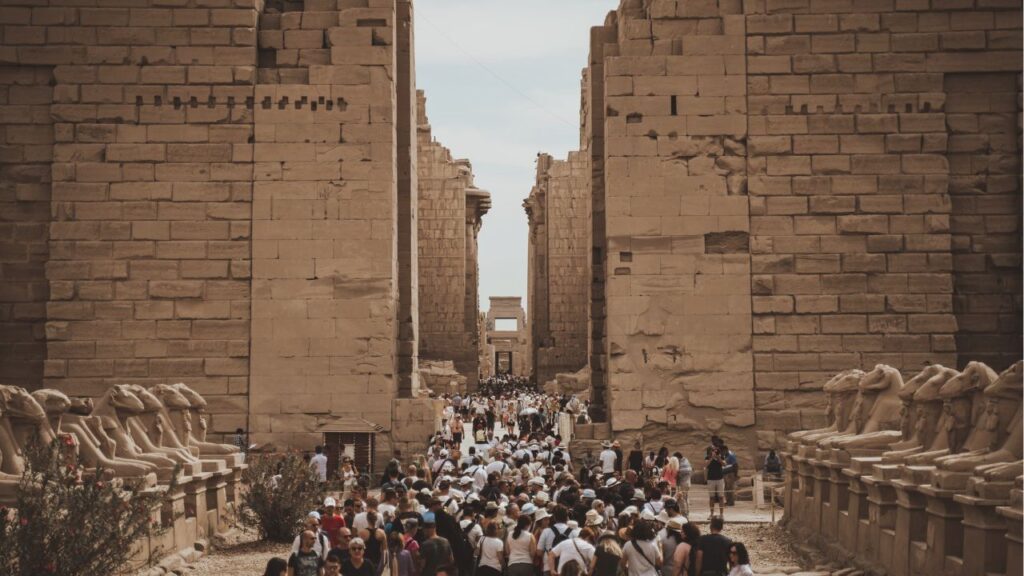
Spring (March to May)
- Weather Conditions: Spring in Luxor sees a gradual increase in temperatures, making it a favorable time for many travelers. Daytime temperatures range from 25°C to 35°C (77°F to 95°F). The weather is generally dry, but occasional sandstorms can occur.
- Recommended Travel Periods: March to May is a great time to visit if you prefer milder weather but still want to avoid the intense heat of summer. It’s an excellent time for sightseeing and exploring outdoor attractions like the Luxor Temple and the iconic temples of Abu Simbel.
Summer (June to August)
- Weather Conditions: Summer in Luxor is characterized by extremely hot and dry weather. Daytime temperatures often soar above 40°C (104°F), and the sun can be relentless. It’s the peak of the scorching desert summer.
- Recommended Travel Periods: While summer can be challenging due to the heat, it may appeal to budget travelers, as this is the low season for tourism, and you can find discounted accommodations. However, exploring outdoor sites during the day can be uncomfortable. If you choose to visit in the summer, plan your activities for the early morning or late afternoon to avoid the heat.
Fall (September to October)
- Weather Conditions: Fall is a transitional season in Luxor, with temperatures gradually cooling down. Daytime temperatures range from 30°C to 38°C (86°F to 100°F). The weather remains mostly dry.
- Recommended Travel Periods: September and October offer a more comfortable alternative to summer. The weather is still warm, and you can enjoy outdoor activities without the extreme heat. It’s a good time for cultural exploration and Nile cruises.
Read also, The Best time to visit Egypt.
Getting There and Around
International Travel Options to Egypt
By Air

The most common way to reach Egypt is by flying into Cairo International Airport (CAI), which is the country’s primary international gateway. You can easily connect to Luxor International Airport (LXR), which offers numerous domestic flights daily. Airlines worldwide operate flights to Cairo, making it a convenient entry point for international travelers.
Domestic Travel to Luxor
By Air
Luxor International Airport (LXR) serves as the primary domestic airport for travelers heading to Luxor. Frequent flights connect Luxor to Cairo, Aswan, and other major cities within Egypt. The flight from Cairo to Luxor is relatively short, making it a convenient option for those coming from the capital.
By Train
Egypt’s extensive rail network connects Luxor to Cairo, Aswan, and other cities. The train journey offers a picturesque view of the Nile River, and it’s an economical option for travelers. Trains vary in terms of comfort and speed, so you can choose between different classes based on your preferences and budget.
Local Transportation Options in Luxor
Taxis
Taxis are a convenient way to get around Luxor. They are readily available and can be hailed on the street or arranged through your hotel. Agree on the fare with the driver before starting your journey, as taxi meters are not always used. Taxis are suitable for short trips within the city.
Horse Carriages
For a unique and traditional experience, consider taking a horse-drawn carriage (caleche) to explore the city. These carriages can be found near major tourist sites and provide a leisurely way to see Luxor’s attractions.
Bicycles and Rickshaws
Some areas of Luxor are bicycle-friendly, and you can rent bicycles to explore at your own pace. Rickshaws, known locally as “tok-toks,” are another option for short journeys and can be a fun way to travel short distances.
Felucca Rides
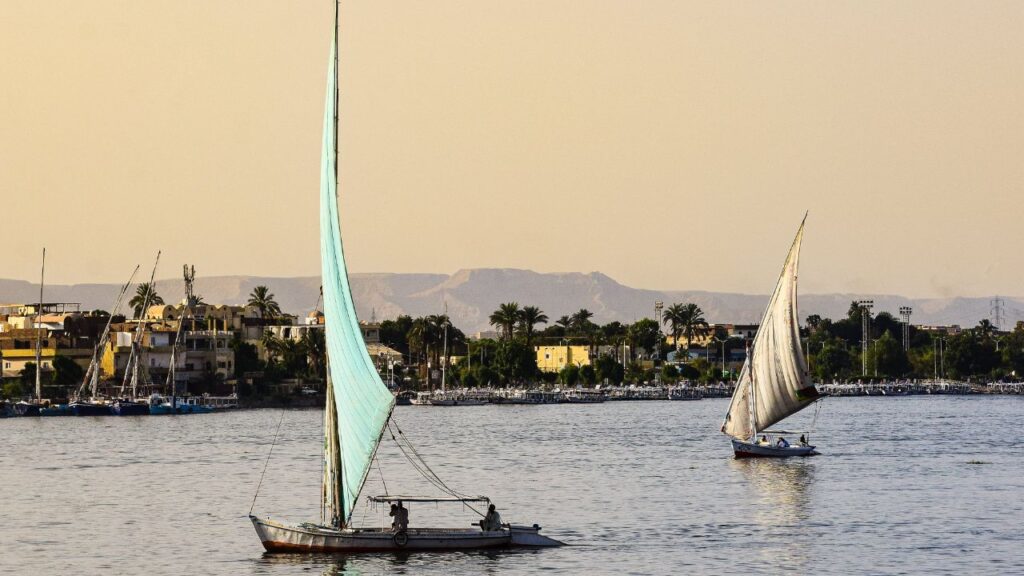
To experience the Nile in a different way, consider taking a felucca ride, a traditional Egyptian sailboat. You can arrange short trips or longer excursions on the river, providing a relaxing and scenic way to see the sights.
Walking
Many of Luxor’s attractions are located close to each other, particularly on the East Bank of the Nile. Walking can be an enjoyable way to explore areas like the Luxor Temple and the Luxor Museum.
Nile Cruises
If you plan to explore both Luxor and Aswan, consider a Nile cruise. These cruises offer a luxurious and convenient way to travel between the two cities while enjoying stunning views and visiting important historical sites along the way.
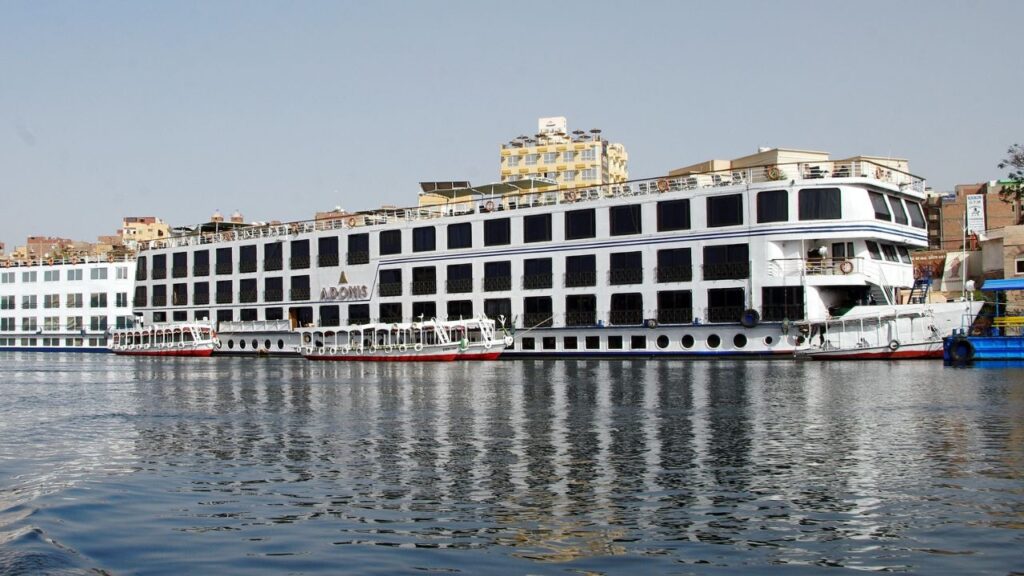
Navigating Luxor is relatively straightforward, with numerous transportation options available to suit various preferences and budgets. Whether you’re exploring ancient temples or enjoying a leisurely sail along the Nile, Luxor offers a wealth of experiences waiting to be discovered.
Must-See Attractions in Luxor
Karnak Temple
- Overview: Karnak Temple is an awe-inspiring complex of ancient temples and chapels dedicated to the god Amun-Ra. It’s the largest religious complex in the world and a testament to the grandeur of ancient Egyptian architecture.
- Traveler’s Tip: Plan to visit early in the morning to beat the crowds and experience the site’s majesty in a more serene atmosphere.
Luxor Temple
- Overview: Located at the heart of Luxor, this temple is a stunning example of ancient Egyptian architecture. It’s beautifully illuminated at night, creating a magical ambiance.
- Traveler’s Tip: Visit in the late afternoon and stay until evening to witness the temple’s transformation as it lights up after sunset.
Valley of the Kings
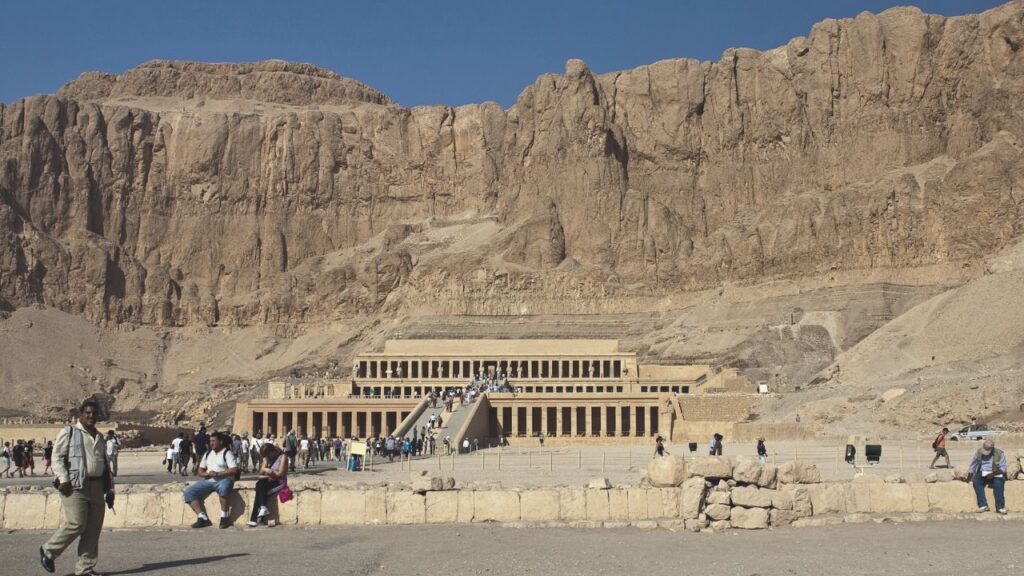
- Overview: The Valley of the Kings is a burial ground for numerous pharaohs and nobles. It’s known for its intricately decorated tombs, including the tomb of Tutankhamun.
- Traveler’s Tip: Consider purchasing a Luxor Pass for access to multiple sites, including the Valley of the Kings and other nearby attractions.
Valley of the Queens
- Overview: Just across from the Valley of the Kings, this site houses the tombs of Egyptian queens and princesses. It offers a quieter and more intimate experience compared to its neighbor.
- Traveler’s Tip: Be sure to explore the tomb of Queen Nefertari, known for its exquisite wall paintings.
Temple of Hatshepsut
- Overview: This temple, dedicated to Queen Hatshepsut, features a unique architectural design carved into the cliffs of Deir el-Bahri. It offers breathtaking views of the surrounding landscape.
- Traveler’s Tip: Visit early in the morning to avoid the heat and crowds.
Colossi of Memnon
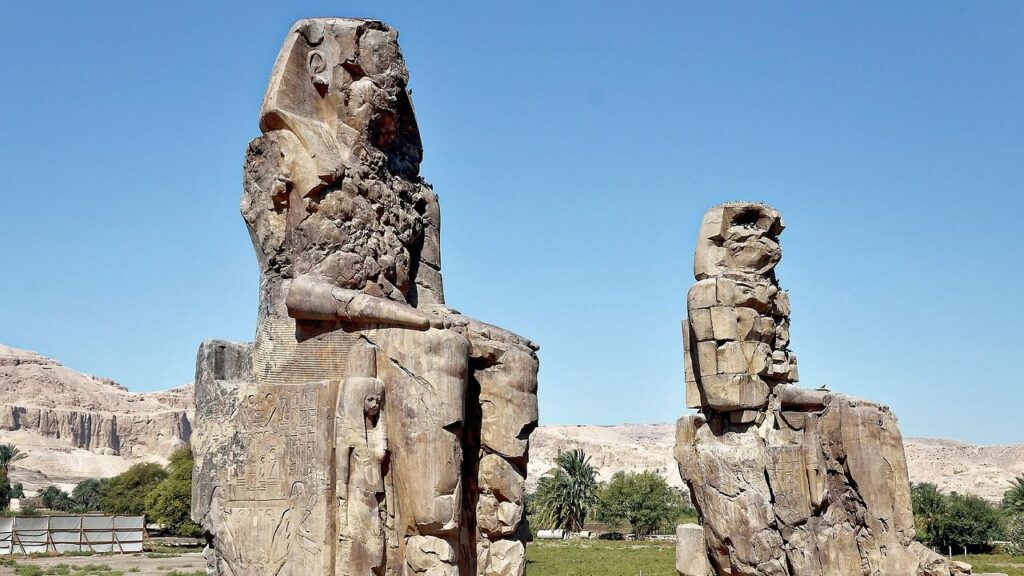
- Overview: These massive twin statues of Pharaoh Amenhotep III once guarded his mortuary temple. They are a remarkable sight and an excellent photo opportunity.
- Traveler’s Tip: Visit during sunrise or sunset for the best lighting and fewer visitors.
Luxor Museum
- Overview: The Luxor Museum houses an impressive collection of artifacts from the Luxor region. It’s a fantastic place to gain insights into the history and culture of ancient Egypt.
- Traveler’s Tip: Engage with the informative displays and consider hiring a local guide to enhance your museum experience.
Medinet Habu
- Overview: This sprawling temple complex is dedicated to Ramses III and is renowned for its well-preserved reliefs and vibrant hieroglyphics.
- Traveler’s Tip: Explore the temple’s various chambers and courtyards to discover its rich history.
Luxor Sound and Light Show
- Overview: This nighttime spectacle at the Karnak Temple or the Luxor Temple is a captivating audiovisual experience that brings ancient history to life.
- Traveler’s Tip: Book your tickets in advance and enjoy the show as a memorable way to conclude your day of sightseeing.
Hot Air Balloon Ride
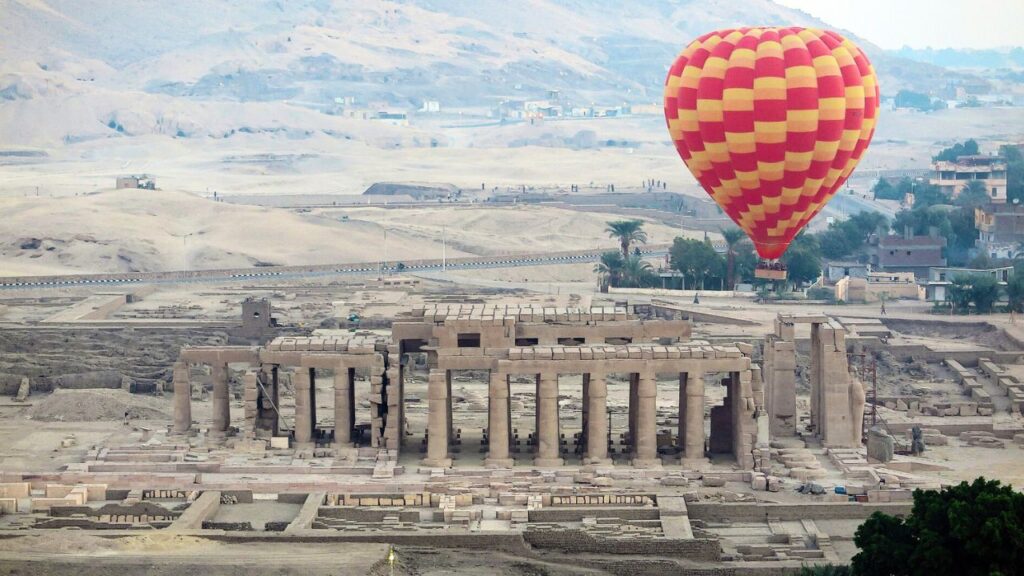
- Overview: Soar above the historic landscapes of Luxor in a hot air balloon for a breathtaking aerial view of the city’s iconic monuments and the serene Nile River. It’s an experience like no other.
- Traveler’s Tip: Book a hot air balloon ride at dawn to witness the sunrise over Luxor, casting a golden hue over the temples and valleys below. This early morning adventure offers stunning photo opportunities and a tranquil experience.
Luxor’s attractions are a window into the magnificence of ancient Egypt, and they promise an unforgettable journey through history. Plan your visit, wear comfortable clothing, stay hydrated, and engage with local guides to make the most of your Luxor adventure.
Accommodation in Luxor
Luxor offers a variety of accommodation options to suit every traveler’s budget, from budget-friendly hostels to luxurious resorts. Here’s an overview of accommodation options by budget, along with recommendations for immersive experiences:
Budget Accommodations
Hostels and Guesthouses:
- Overview: Luxor has several budget-friendly hostels and guesthouses that provide clean and comfortable rooms. These are great options for backpackers and budget-conscious travelers.
- Traveler’s Tip: Look for hostels with communal spaces where you can meet fellow travelers and share experiences.
Budget Hotels:
- Overview: Many affordable hotels in Luxor offer basic amenities and comfortable rooms. These hotels are often family-run, providing a warm and welcoming atmosphere.
- Traveler’s Tip: Read reviews and check for hotels with good customer service and convenient locations.
Mid-Range Accommodations
Boutique Hotels:
- Overview: Luxor boasts several charming boutique hotels that offer a blend of comfort and local character. These are perfect for travelers seeking a unique and personalized experience.
- Traveler’s Tip: Look for boutique hotels located along the Nile for stunning river views.
3- and 4-Star Hotels:
- Overview: Luxor has numerous mid-range hotels that provide modern amenities, including swimming pools, restaurants, and comfortable rooms. They often offer great value for money.
- Traveler’s Tip: Consider booking a hotel with a rooftop terrace for picturesque views of the city and the Nile.
Luxury Accommodations
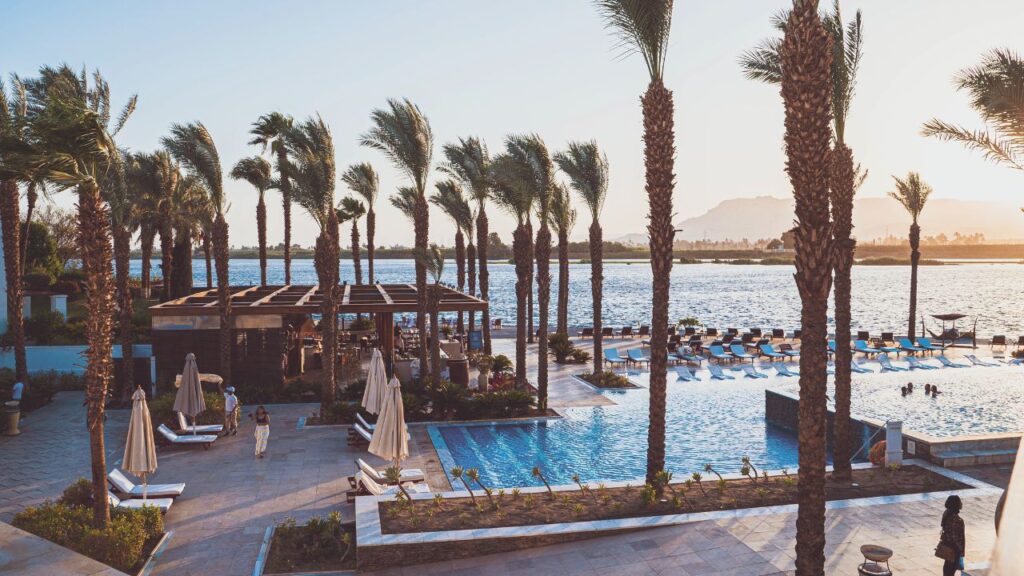
Luxury Resorts and Nile Cruises:
- Overview: Luxor boasts a selection of world-class luxury resorts and Nile River cruises that offer opulent accommodations, exquisite dining, and impeccable service. Staying in these establishments is an experience in itself.
- Traveler’s Tip: Splurge on a Nile cruise to combine luxurious living with exploring ancient sites along the riverbanks.
Recommendations for Immersive Experiences
Stay on the West Bank
Consider staying on the West Bank of Luxor for a more immersive experience. The West Bank is less touristy and provides easy access to attractions like the Valley of the Kings and the Temple of Hatshepsut.
Cultural Exchange Programs
Some accommodations offer cultural exchange programs where you can learn about Egyptian traditions, cuisine, and crafts. This is a fantastic way to gain a deeper understanding of the local culture.
When choosing accommodation in Luxor, consider your budget, preferred location, and the type of experience you desire. Luxor offers various options catering to different tastes and budgets, ensuring you can find the perfect place to enhance your exploration of this ancient city.
Food and Drink in Luxor
Exploring the culinary landscape of Luxor is a delightful journey in itself. The city’s rich history and cultural diversity have influenced its cuisine, resulting in a tantalizing array of flavors and dishes. Here’s what travelers should know about food and drink in Luxor:
Local Specialties
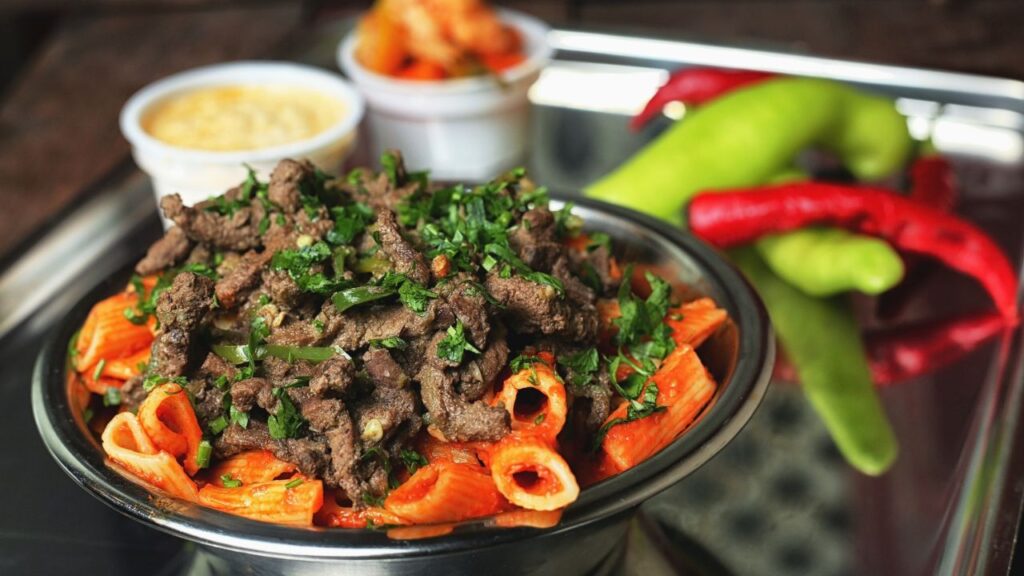
Koshari
A beloved Egyptian comfort food, koshari is a hearty dish made from lentils, rice, pasta, fried onions, and a flavorful tomato sauce. It’s both delicious and affordable, making it a must-try for travelers on a budget.
Ful Medames
Another staple of Egyptian cuisine, ful medames, consists of slow-cooked fava beans seasoned with garlic, lemon juice, and olive oil. It’s often served with bread for a satisfying and nutritious meal.
Molokhia
Molokhia is a green leafy vegetable often cooked into a soup or stew with garlic, coriander, and other spices. It’s usually served with rice or bread and is a popular dish among locals.
Ta’amiya (Egyptian Falafel)
Egyptian falafel, known as ta’amiya, is made from ground fava beans or chickpeas mixed with herbs and spices, then deep-fried. It’s typically served in pita bread with tahini sauce, vegetables, and pickles.
Fresh Seafood
Given Luxor’s proximity to the Red Sea, you’ll find a variety of fresh seafood dishes, including grilled fish and shrimp. These dishes are especially popular in restaurants along the Nile.
Recommended Restaurants, Cafes, and Street Food Vendors
Aisha Restaurant Luxor
This restaurant offers a diverse menu of Egyptian cuisine and Mediterranean cuisine and is known for its great service and hospitality.
Restaurant El-Kababgy Luxor
EL- Kababgy Restaurant is a place where you can find all the local and traditional food from Egypt. Here you can find the menu of the restaurant. On that link, you also can reserve a table for your dinner in Luxor.
Al Sahaby Lane Restaurant
At Al Sahaby Lane Restaurant, you can enjoy the view over the sphinxes and The Nile River while you delight in the authentic egyptian dish.
Dietary Considerations and Tips for Travelers
Vegetarian and Vegan Options
While Egyptian cuisine features many vegetarian and vegan-friendly dishes, it’s essential to communicate your dietary preferences to restaurant staff to ensure your meals are prepared accordingly.
Hydration
The climate in Luxor can be hot and arid, so staying hydrated is crucial. Drink bottled water and consider carrying a refillable water bottle to minimize plastic waste.
Street Food Caution
Street food in Luxor can be delicious, but it’s wise to choose vendors that appear clean and busy to minimize the risk of foodborne illness. Ensure that food is cooked thoroughly, and consider carrying hand sanitizer.
Tipping

Tipping is customary in Egypt, and the bill may not include service charges. It’s customary to leave a tip of around 10-15% for good service.
Local Etiquette
While dining, it’s polite to use your right hand for eating and greeting. Also, be mindful of local customs, such as Ramadan, when some restaurants may have altered hours.
Festivals and Events in Luxor
Luxor International Film Festival
- Overview: This annual film festival, typically held in January, showcases a diverse selection of international and Egyptian films.
- Traveler’s Tip: If you are interested in cinema, attending this festival can be a unique cultural experience.
Sham El Nessim
- Overview: Celebrated on the day after Coptic Easter (usually in April), this ancient Egyptian holiday marks the arrival of spring with picnics and outdoor festivities.
- Traveler’s Tip: Join in the local celebrations and enjoy traditional foods like colored eggs and salted fish.

Islamic and Coptic Holidays
- Overview: Luxor observes various Islamic and Coptic Christian holidays throughout the year, which may impact opening hours and local customs.
- Traveler’s Tip: Be aware of the holiday calendar when planning your visit, as some attractions and services may be limited during these times.
Sound and Light Shows
- Overview: Luxor’s historical sites often host mesmerizing sound and light shows in the evenings, which offer a unique way to experience the city’s ancient history.
- Traveler’s Tip: Check the schedules for these shows at locations like the Karnak Temple and the Luxor Temple for an enchanting evening.
Cultural Etiquette and Tips
Common Local Customs and Behaviors
Respect for Religion
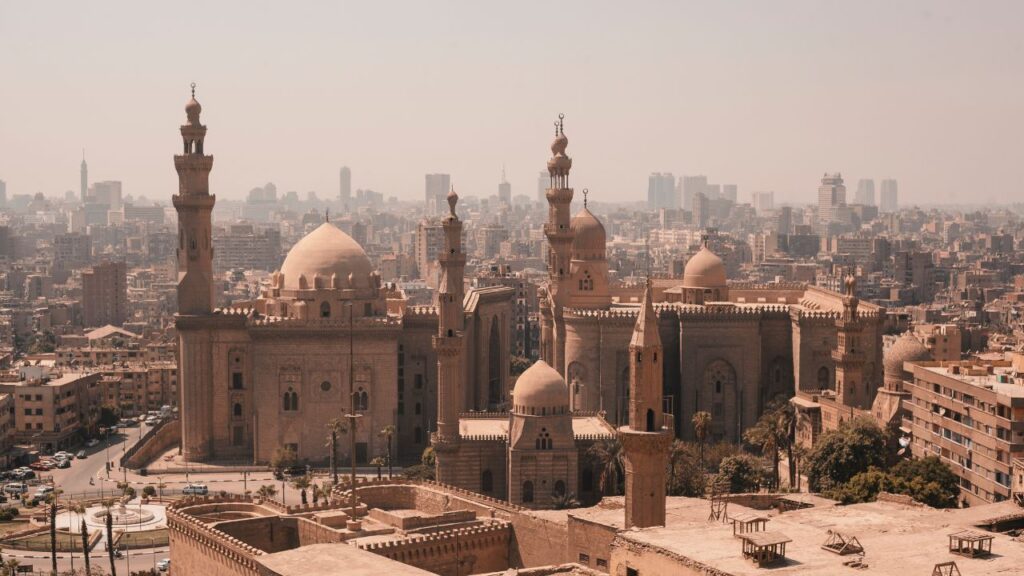
Egyptians hold their religious beliefs in high regard. Be respectful when visiting mosques and temples. Dress modestly, remove your shoes when required, and avoid loud conversations or disruptions during prayers.
Greetings
Greet locals with a polite “As-salaam alaykum” (peace be upon you) or “Marhaba” (hello). A smile goes a long way in establishing a friendly rapport.
Hand Gestures
Use your right hand for eating, touching, and offering items, as the left hand is traditionally considered unclean.
Photography
Always ask for permission before taking photos of people, especially in rural or less touristy areas. In some cases, a small tip may be expected.
Dress Code, Particularly for Religious and Historic Sites
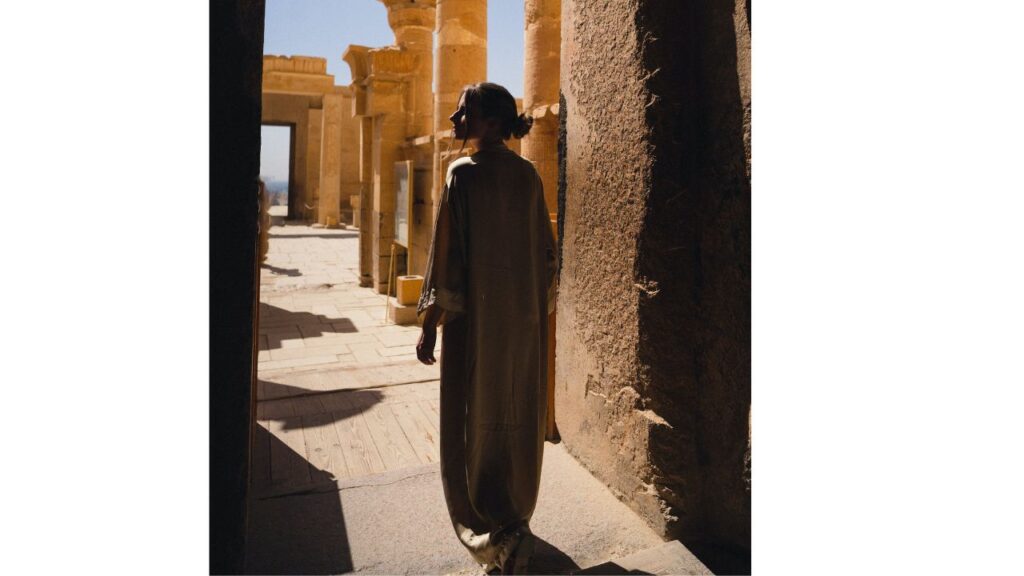
Modesty
Dress modestly when visiting religious or historic sites. For men, long pants and covered shoulders are recommended. Women should wear long skirts or pants and cover their arms, chest, and hair with a scarf (hijab) at mosques.
Footwear
You’ll often be required to remove your shoes when entering mosques and some historic sites. Wearing slip-on shoes or sandals can make this process more convenient.
Sun Protection
Given Luxor’s climate, wear sunscreen, sunglasses, and a wide-brimmed hat to protect yourself from the sun when exploring outdoor sites.
Tips on Bargaining and Shopping in Local Bazaars
Bargaining
Bargaining is a common practice in Luxor’s markets (souks). Start by offering a lower price than what’s quoted, and be prepared to negotiate. Keep the tone friendly and respectful.
Comparison Shop
Don’t buy from the first vendor you encounter. Walk around and compare prices at different stalls to get a sense of the market rates.
Quality Check
Examine items closely before purchasing. Be cautious of counterfeit goods, especially in popular tourist areas.
Local Currency
Carry Egyptian pounds (EGP) for shopping, as many vendors may not accept foreign currency or credit cards.
By respecting local customs, dressing appropriately, and engaging in friendly bargaining, you can navigate Luxor’s cultural nuances with ease and make the most of your travel experience.
Health and Safety
General Safety in Luxor
Personal Belongings
Keep your belongings secure and be cautious in crowded areas and tourist spots to avoid pickpocketing. Consider using a money belt or neck pouch for valuables.
Traffic Safety
Exercise caution when crossing streets, as traffic in Luxor can be chaotic. Always use designated crosswalks when available, and be aware of your surroundings.
Health Precautions
Water
Stick to bottled water for drinking and avoid consuming tap water or ice in drinks to prevent waterborne illnesses.

Food Safety
While exploring local cuisine, opt for freshly cooked and hot meals. Avoid raw or undercooked seafood and street food that may not be properly prepared.
Vaccinations
Ensure your routine vaccinations are up to date, and consider vaccinations for diseases like hepatitis A and typhoid before traveling to Luxor. Consult your healthcare provider for personalized advice.
Scams and Harassment
Harassment
Some tourists may experience unwanted attention or harassment, particularly if traveling alone or dressing in a way that is perceived as immodest. Maintain personal boundaries and use confident body language to deter unwelcome advances.
Travel Advisories
Government Guidance
Before traveling to Luxor, check for any travel advisories or updates from your government’s travel department or embassy. It’s essential to stay informed about the current situation in the region.
Local Contacts
Register with your embassy or consulate upon arrival in Luxor. This ensures that you can receive assistance or updates in case of emergencies.
Local Laws and Customs
Alcohol
Respect local laws regarding alcohol consumption. Alcohol is available in licensed hotels and restaurants, but public drunkenness is not tolerated.
Religious Sites
Dress modestly when visiting mosques and temples. Women should cover their arms, chest, and hair with a scarf (hijab) at mosques.
Photography
Always ask for permission before taking photos of people, especially in rural or less touristy areas. In some cases, a small tip may be expected.
The Legend of “Hidden Tomb Queen Nefertiti”
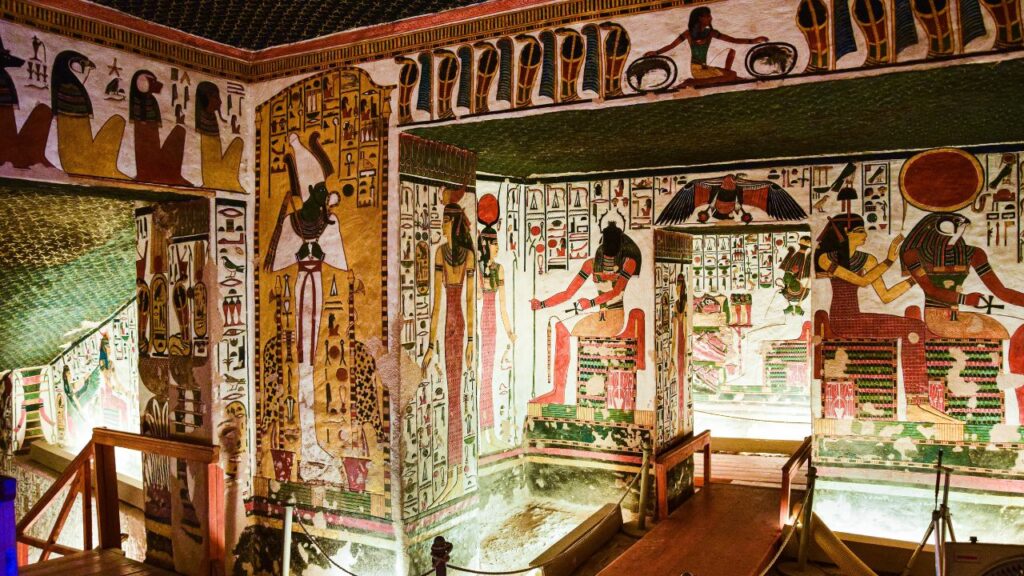
This legend suggests that the burial place of Queen Nefertiti, the famous queen of Pharaoh Akhenaten and stepmother of King Tutankhamun, remains concealed somewhere in the Luxor region.
According to the legend, Nefertiti’s tomb was hidden away to protect it from tomb robbers and invaders. The exact location of this hidden tomb is said to be a closely guarded secret, known only to a select few ancient priests and guardians.
Local tour guides might tell variations of this story, each with its twist, claiming that the tomb holds not only the remains of Queen Nefertiti but also a wealth of untold treasures and historical artifacts. Some versions of the legend even suggest that ancient curses and traps guard the tomb to deter intruders.
While there is no concrete historical evidence to support the existence of such a hidden tomb, the mystery surrounding Queen Nefertiti’s final resting place continues to captivate both locals and tourists alike. This legend adds an aura of intrigue to Luxor’s rich archaeological landscape, inspiring visitors to explore the region’s many historical sites to uncover hidden secrets of the ancient past.
Final words
In the timeless city of Luxor, ancient history and modern wonder intertwine, offering travelers a remarkable journey through the heart of Egypt’s ancient civilization. From awe-inspiring temples to hidden legends, every corner of Luxor tells a story waiting to be discovered. Embrace the magic of Luxor, where the past comes alive and history is etched into every stone.

